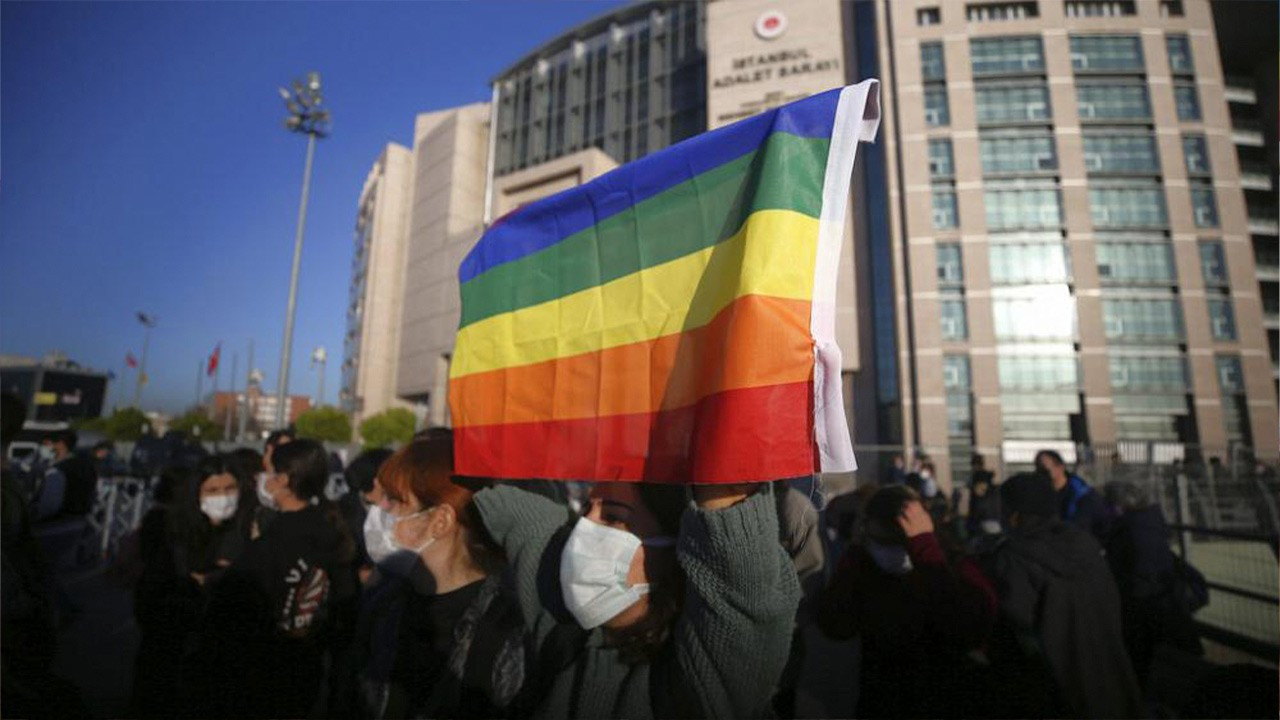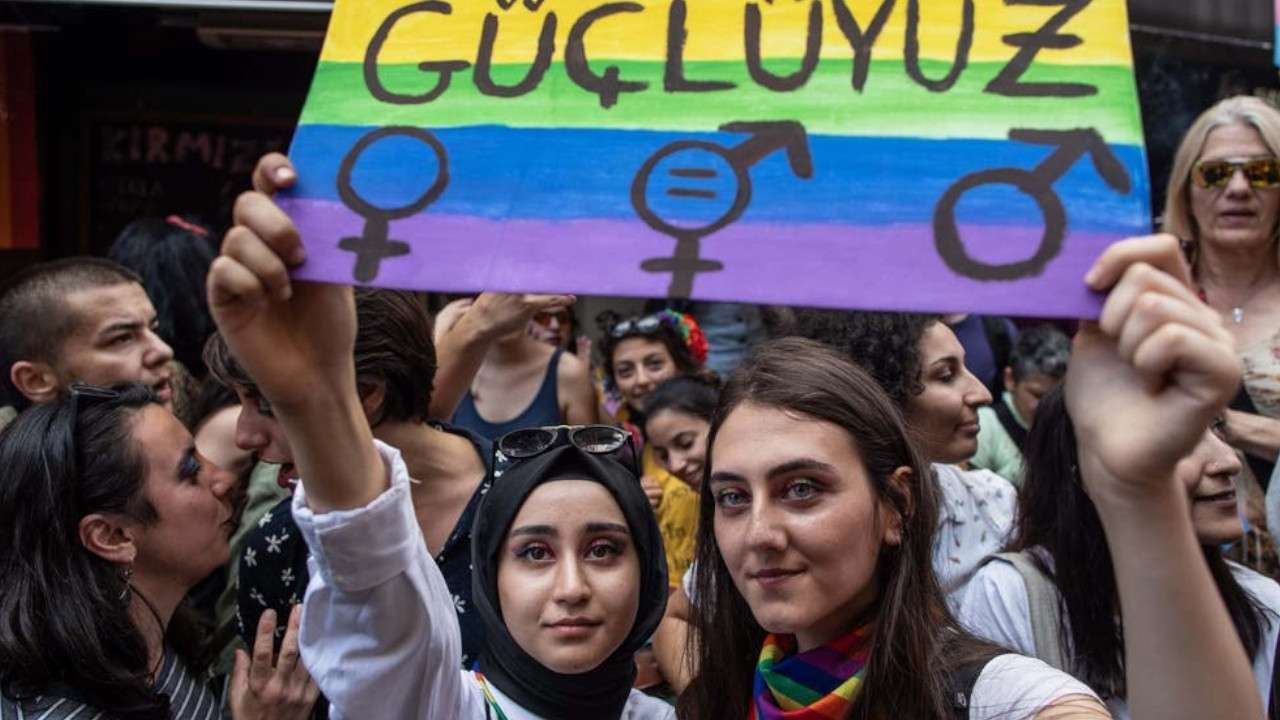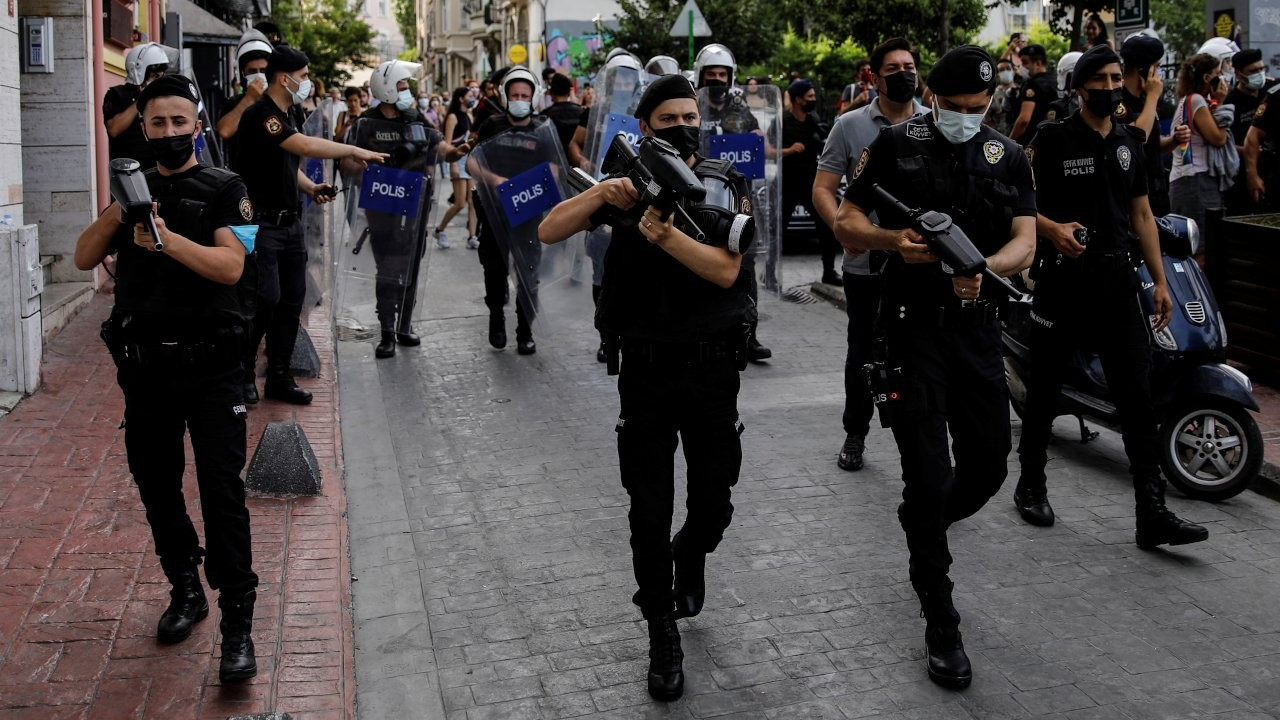Turkish LGBTI+ people face existential threats under AKP rule, report finds
According to the latest report released by Kaos GL, LGBTI+ people in Turkey face existential threats from the government, but stand strong “despite everything.”
Zafer Kıraç / DUVAR
The latest report released by LGBTI+ advocacy group Kaos GL based on data collected from 2007 to 2021 shows that under Turkey’s Justice and Development Party (AKP)-led government, queer people in the country face an existential threat.
However, despite everything, the queer community in Turkey manages to maintain its strength and presence, the report said.
The report, entitled “Despite Everything: LGBTI+ Human Rights in 2021,” was compiled by attorney Kerem Dikmen based on reports of human rights violations to queer people reported in the media, to non-governmental organizations, and directly to Kaos GL. Dikmen said that they compiled this report in a new, broader format because 2021 was a particularly “grey” year for the LGBTI+ community.
The report found widespread mistreatment of the queer community in Turkey, including eight documented hate crimes – the real, undocumented number is thought to be much higher – the maltreatment of dozens in police custody, widespread clampdowns on freedom of expression, and specific targeting of LGBTI+ people following protests at Boğaziçi University.
The most striking finding, Dikmen said at a meeting to present the report in late February, was the resilience of Turkey’s LGBTI+ people. When asked if they were deterred by crackdowns by the government or authorities to step away from their activism or identity, nearly all those interviewed said they would “still do it anyway” and that they didn’t think they made the wrong decision.
“Think about it, they are having a moment where they are pressed into a police car, not knowing what will happen, or their student loan has been cut and they will not be able to pay rent, but they say they will make the same decision even though they know they will face similar outcomes. This was a very striking result,” Dikmen said.
Despite oppression, arrests, silencing, and even torture, the queer community said “I am here, and I will continue to be,” he said.
According to Dikmen, human rights violations in Turkey in 2021 were more systemic than in years past. While in the past, he said, the state focused on limiting rights for this community, it now “chose to intervene in existence.” Authorities tried to isolate trans people from women’s day marches, arrested others, and used queer symbols such as the trans or gay pride flag as criminal evidence. Further, violations of basic rights increased - violations of freedom of expression and freedom of assembly tripled from 2020, according to the report. Levels of torture or ill-treatment increased at a similar rate.
Unfortunately, Dikmen said it would be difficult to pursue investigations or complaints against those individuals or institutions involved in these violations, considering the position of the state with regards to civil society more broadly and LGBTI+ people specifically. President Recep Tayyip Erdogğn has called queer people “perverts” and says that they are not natural, nor are they truly Turkish.
"In such a climate, it is difficult and unrealistic to make a plan to ensure that public institutions take steps to comply with human rights in the eyes of those who govern the state. But we still share these reports with public institutions,” he said.
Dikmen holds the state fully responsible for all violations he and Kaos GL outlined in the report. Torture and maltreatment of citizens are both unconstitutional in Turkey, and he says that as the guardian of the Constitution, the state has a responsibility to uphold rights even for those whose sexuality or lifestyle it deems counter to its own beliefs.
“For example, if an LGBTI+ person is tortured by a public official, the perpetrator is the state, because the public official is state personnel. If a third party tortures an LGBTI+ person, but there is no investigation or punishment against that person, the perpetrator is still the state, because as I mentioned above, the power to punish has been transferred to the state and the state avoids using this power,” he said.
(English version by Erin O'Brien)

 AKP MP retracts accepting statement on LGBT+ people: We cannot approve of pervertsDomestic
AKP MP retracts accepting statement on LGBT+ people: We cannot approve of pervertsDomestic AKP deputy chair says LGBT+ people 'created by God,' should be respectedHuman Rights
AKP deputy chair says LGBT+ people 'created by God,' should be respectedHuman Rights Award-winning photo of LGBT activists from Turkey featured on billboard in Times SquareCulture
Award-winning photo of LGBT activists from Turkey featured on billboard in Times SquareCulture Turkish police brutally disperse Pride march in IstanbulHuman Rights
Turkish police brutally disperse Pride march in IstanbulHuman Rights